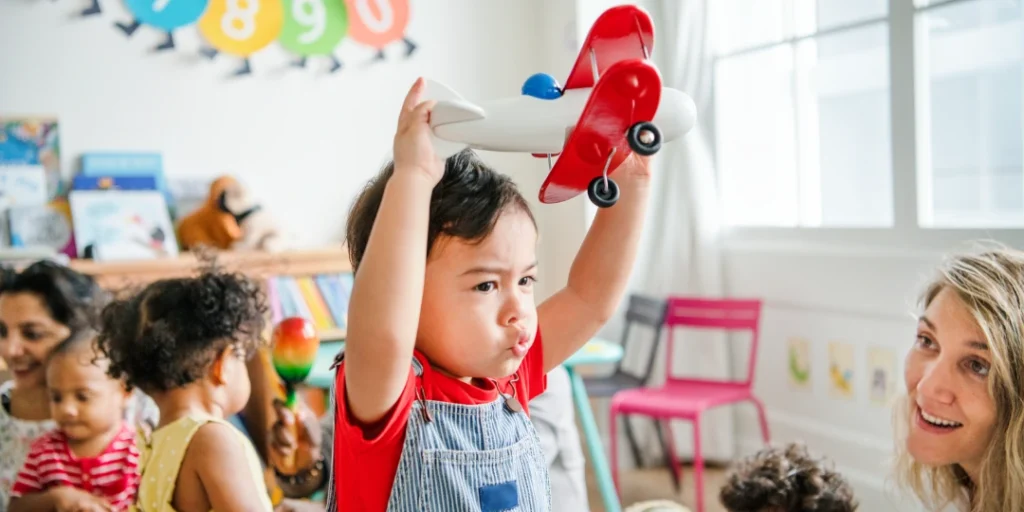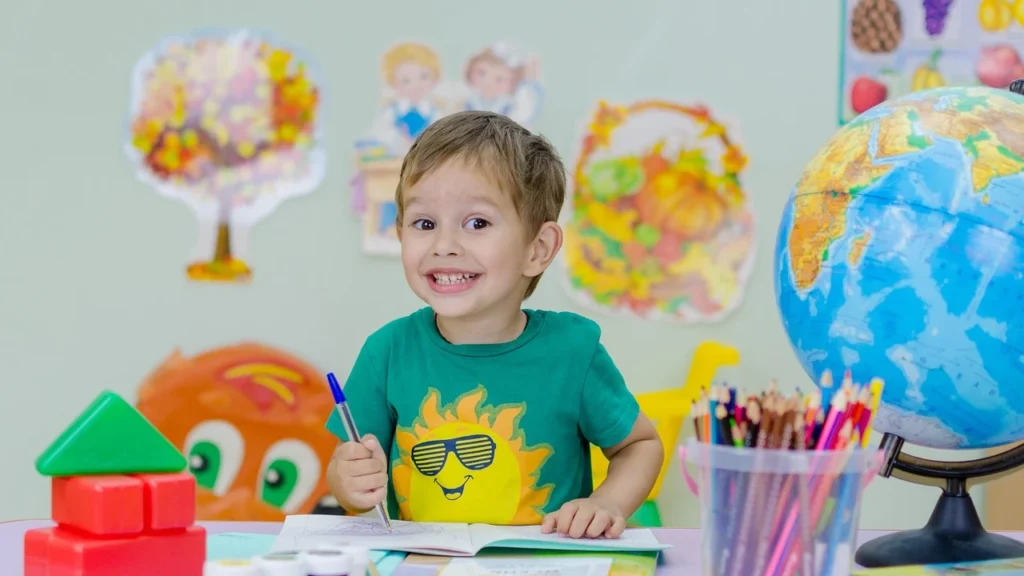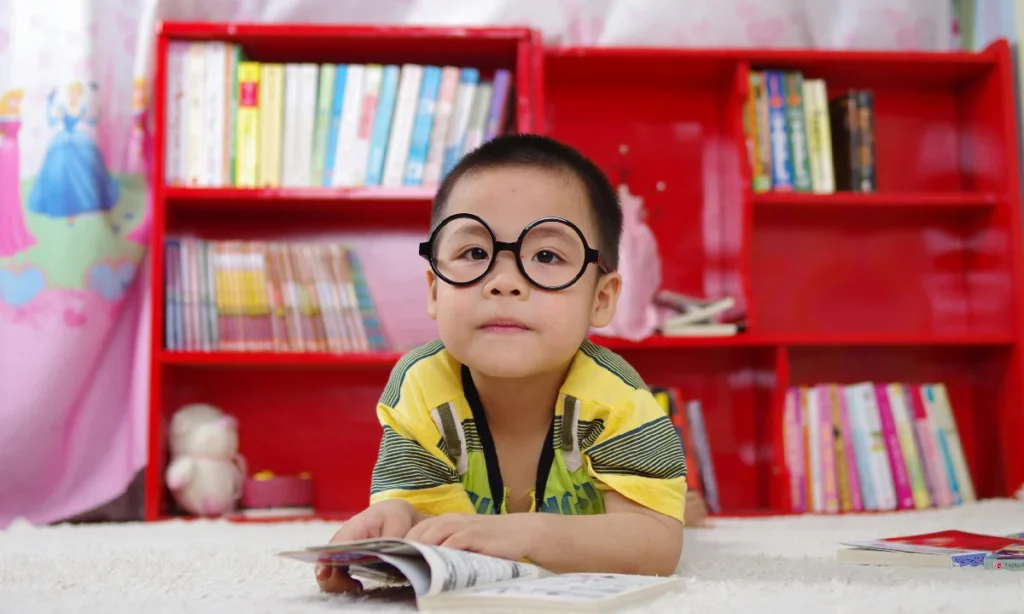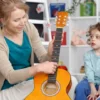![From Toddlers to Pre-K: How Murfreesboro Day School Nurtures Growth at Every Stage Introduction: A Foundation for Lifelong Learning At Murfreesboro Day School, early childhood education is more than a service—it’s a responsibility to nurture the whole child from their earliest days. The […]](https://dayschools.org/murfreesboro/wp-content/uploads/sites/3/2025/05/Murfreesboro-Day-School-10.webp)
Table of Contents
Introduction: A Foundation for Lifelong Learning
At Murfreesboro Day School, early childhood education is more than a service—it’s a responsibility to nurture the whole child from their earliest days. The school’s philosophy is grounded in the belief that the early years are not just preparatory, but foundational. During this critical window, the brain is developing at a rate never seen again in life. Children absorb language, form attachments, and establish patterns of thought that influence how they relate to others and process information well into adulthood. Recognizing this, Murfreesboro Day School intentionally crafts an environment that encourages curiosity, exploration, and emotional resilience.
Unlike rigid academic models, the educational journey at Murfreesboro Day School doesn’t rush children toward benchmarks. Instead, it honors the process of becoming—of discovering, trying, and growing in a nurturing atmosphere. Every lesson, routine, and interaction is thoughtfully designed to help children feel safe, valued, and eager to engage. Teachers foster trust and belonging before introducing new ideas, ensuring that learning is not just effective but joyful. The approach acknowledges that true education begins when children feel emotionally secure and intellectually challenged in equal measure.
This foundational model is what sets Murfreesboro Day School apart. Rather than viewing toddlerhood and preschool as isolated stages, the school sees them as part of a fluid, interconnected arc. Milestones are noted, but not rushed. Progress is encouraged, but never forced. It’s this balance of patience and intentionality that allows children to flourish—not just academically, but socially, emotionally, and ethically. The result is a child who steps into kindergarten not only prepared for school, but prepared for life.
Understanding Early Childhood Development
Early childhood is a time of astonishing transformation. From the moment a child begins walking and talking, their world expands rapidly, driven by biological and environmental forces. Murfreesboro Day School understands that between the ages of one and five, the brain undergoes a proliferation of neural pathways that form the basis for all future learning. Every new experience—whether it’s stacking blocks, singing a song, or navigating a conflict with a peer—has the potential to shape cognition, memory, and emotional regulation. The school’s curriculum is carefully mapped to align with these neurological milestones, ensuring that each activity supports meaningful development.
At Murfreesboro Day School, children are not viewed as miniature adults, but as individuals experiencing rapid change in motor skills, language capacity, and emotional awareness. The school respects this flux by adapting its methods and expectations to meet children where they are. For toddlers, that may mean offering sensory activities that stimulate fine motor coordination or providing language-rich play to support verbal development. For preschoolers, it might involve encouraging storytelling, problem-solving, or cooperative group work. Teachers are trained to observe, interpret, and respond to developmental cues in real-time, adjusting instruction to best support each child’s unique trajectory.
This developmentally responsive approach is what allows Murfreesboro Day School to offer more than care—it delivers intentional education. By embedding developmental science into daily routines, the school ensures that learning is not only age-appropriate but personally meaningful. Whether a child is just beginning to string words together or is learning to take turns in a game, their experiences are scaffolded with the knowledge that early development is the bedrock of later success. At every level, Murfreesboro Day School provides the structure, support, and stimulation needed to turn potential into progress.

The Toddler Program: Building Trust and Exploration
Murfreesboro Day School’s toddler program is built on one essential principle: trust fosters exploration. Toddlers enter the world with a strong need for consistency and emotional security. At this stage, they are forming their first attachments outside the home, and the environment they encounter can shape how confidently they move through the world. Murfreesboro Day School responds to this with an approach that prioritizes warm, predictable routines and deeply engaged caregiving. Each child is greeted with familiarity and kindness, reinforcing a sense of safety that invites them to step beyond their comfort zone.
The program is designed to stimulate curiosity without overwhelming. Classrooms are calm but rich with opportunity—colorful, sensory materials invite children to explore textures, sounds, and motion. Teachers act not as instructors, but as responsive partners, observing a child’s interests and gently extending their learning with questions or challenges. Rather than directing play, they co-create experiences, letting toddlers take the lead while offering guidance when needed. This kind of interaction helps children develop confidence, autonomy, and an early sense of mastery over their environment.
At Murfreesboro Day School, the toddler classroom is a microcosm of possibility. Language begins to emerge, relationships form, and self-awareness takes root. It’s in this setting that children learn that their ideas matter, that they can influence outcomes, and that adults are allies in discovery. These early lessons in trust, agency, and curiosity lay a foundation not just for academic learning, but for social and emotional resilience. The toddler program doesn’t rush this process; it allows it to unfold, thoughtfully and naturally, with every child at the center.
Encouraging Social and Emotional Growth
Social and emotional development is at the heart of everything Murfreesboro Day School does. Young children are not born with the ability to manage emotions or navigate relationships—these are learned skills, cultivated through experience and modeled by the adults around them. At Murfreesboro Day School, emotional literacy is woven into the daily rhythm. Teachers name feelings, validate emotions, and guide children in recognizing how their actions affect others. This consistent modeling gives children a vocabulary and framework to express themselves constructively.
Conflict is treated not as disruption, but as opportunity. Whether it’s a dispute over a toy or frustration during group play, teachers guide children through these moments with patience and presence. They ask questions like “How do you think your friend feels?” or “What could we try instead?” This fosters empathy, perspective-taking, and self-regulation—all skills that are predictive of success both in and beyond the classroom. Children are taught that emotions are valid and manageable, and that relationships are built through mutual understanding and respect.
Murfreesboro Day School’s emphasis on social-emotional learning extends to classroom culture. Routines such as morning meetings, group discussions, and cooperative activities build a sense of community. Every child is seen and heard, contributing to a shared environment of belonging. The result is a classroom where children feel safe to take risks, try new things, and connect with others. These foundational experiences help students develop not just emotional competence, but a sense of social responsibility that will serve them throughout their lives.
Language and Communication Skills: Early Literacy Begins Here
Language is the bridge between thought and expression, and at Murfreesboro Day School, it is nurtured with intentionality from the very beginning. Educators understand that rich, meaningful communication fuels cognitive and social development. From daily conversations to storytelling circles, children are immersed in a language-rich environment. They are not only spoken to but spoken with, encouraged to articulate ideas, narrate actions, and ask questions. This reciprocal dialogue strengthens verbal skills and reinforces that their voices matter.
Early literacy is introduced organically—through songs, rhymes, picture books, and dramatic play. Murfreesboro Day School uses these tools not for rote instruction, but to engage imagination and comprehension. Teachers draw connections between spoken and written words, pointing out symbols, repeating patterns, and encouraging children to explore books independently. Even before formal reading begins, children are developing phonemic awareness, vocabulary, and narrative structure. These experiences lay the groundwork for confident, fluent readers in the years to come.
Beyond mechanics, communication at Murfreesboro Day School is relational. Children are guided to listen actively, take turns speaking, and respond thoughtfully. Group discussions, shared storytelling, and peer conversations are all part of the curriculum. These interactions help children understand context, tone, and the power of words. Whether they’re naming objects, sharing an idea, or comforting a classmate, children are building a lifelong capacity for meaningful, expressive communication. In every exchange, they are learning that language is a tool—not just for learning, but for connection.

Cognitive Development Through Play-Based Learning
At Murfreesboro Day School, play isn’t seen as separate from learning—it is the learning. The school recognizes that children build critical thinking, memory, and problem-solving skills not through worksheets, but through hands-on, open-ended play. Whether it’s fitting shapes into a puzzle or constructing a tower from blocks, every playful interaction is an opportunity for discovery. Teachers observe closely, stepping in not to control, but to scaffold—offering the right question or material at the right time to deepen the experience.
This approach respects that young minds do not learn in linear ways. A simple game of matching colors can lead to early math concepts. A pretend grocery store becomes a lesson in categorization, negotiation, and symbolic reasoning. Murfreesboro Day School deliberately curates its classroom environments to support these kinds of explorations. Materials are rotated regularly to spark curiosity and maintain engagement. Every center, from sensory bins to dramatic play, is an invitation to think, explore, and hypothesize.
Cognitive growth is most powerful when it’s self-motivated, and the school cultivates this by allowing children to follow their interests. Educators strike a balance between guiding and observing, knowing when to extend a challenge or step back and let the child lead. This dynamic, responsive method encourages persistence, attention span, and flexible thinking. Over time, children begin to recognize patterns, draw conclusions, and approach problems with creativity and confidence. Murfreesboro Day School treats each moment of play as a serious step in the development of the thinking child.
The Role of Creativity and Expression
Creativity at Murfreesboro Day School is not confined to an “art time.” It permeates every part of the curriculum, grounded in the belief that expressive experiences are essential to whole-child development. Through music, storytelling, movement, and visual arts, children are given diverse avenues to represent their ideas and emotions. These activities help them make sense of their experiences and build connections between thought and action. Importantly, the focus is never on the product—it’s on the process.
Art materials are readily available and varied: clay, pastels, natural materials, and recycled objects all encourage experimentation. Children are encouraged to explore texture, shape, and form, creating not only images but meaning. Music sessions, too, are exploratory rather than instructional. Children sing, play instruments, and move freely, developing rhythm and coordination while also building confidence and collaboration. Every expressive moment is a chance to develop cognitive flexibility and emotional awareness.
Murfreesboro Day School sees creative expression as a key to communication. Some children express themselves most easily through drawing, others through movement or pretend play. These modes of expression are honored and supported equally. Teachers engage with children about their creations, asking open-ended questions to invite reflection and storytelling. In doing so, they help students connect their inner world with their external environment. Creativity becomes more than an outlet—it becomes a bridge between imagination and understanding, shaping how children see themselves and their place in the world.
Preparing for Pre-K: Developing Independence
As children move closer to Pre-K age, Murfreesboro Day School shifts focus toward fostering independence. The school recognizes that autonomy is not simply about completing tasks—it’s about building executive function, resilience, and a sense of personal agency. Classrooms are structured to encourage children to take ownership of their day. Visual schedules, labeled bins, and accessible tools help children make choices, solve small problems, and navigate their environment with increasing confidence.
Daily routines become opportunities for growth. Children are encouraged to serve their own snacks, tidy up materials, and manage their belongings. These seemingly simple acts are actually powerful exercises in planning, sequencing, and self-monitoring. Teachers support this growth by modeling strategies and offering encouragement without stepping in too quickly. This balance allows children to experience small struggles and successes that build grit and satisfaction.
Murfreesboro Day School’s commitment to independence doesn’t stop at self-care. Children are also empowered to direct parts of their learning. Choice-based activities and project work allow them to select areas of interest and explore them in depth. Teachers facilitate this process, helping children ask questions, gather information, and reflect on what they’ve learned. In this environment, independence is not just a skill—it’s a mindset. Children learn that their ideas matter, their actions have impact, and they are capable of navigating the world around them with thoughtfulness and purpose.

The Pre-K Curriculum: Readiness and Rigor
Murfreesboro Day School approaches Pre-K as a bridge between early childhood and formal education, blending the warmth of play with the structure of school-readiness. The curriculum is designed to support all domains of development—cognitive, social, emotional, and physical—while gently increasing expectations. Rather than emphasizing rote learning, the Pre-K program encourages higher-order thinking, collaborative problem-solving, and the development of foundational academic concepts through rich, meaningful experiences.
Language and literacy are key focal points. Children engage with print in diverse ways: listening to stories, retelling events, identifying letters, and beginning to explore phonics through songs and play. Writing begins with drawing and dictation, progressing naturally to letter formation and storytelling. Math is equally experiential—children sort, count, measure, and explore patterns using hands-on materials. These tasks aren’t treated as drills, but as invitations to wonder about numbers, shapes, and sequences in the world around them.
Crucially, Murfreesboro Day School understands that true school readiness includes emotional resilience and the ability to work within a group. The Pre-K environment fosters self-regulation, attention control, and peer collaboration. Children participate in group projects, follow multi-step directions, and take increasing responsibility for their work and actions. These experiences build the stamina, adaptability, and social awareness needed for a smooth transition to kindergarten. The result is a confident learner—one who doesn’t just know how to count or write their name, but who approaches challenges with curiosity and persistence.
Family Engagement and School Partnership
Murfreesboro Day School believes that the best outcomes for children happen when families and educators work together as true partners. The school actively cultivates a culture of collaboration, where communication is open, respectful, and ongoing. Parents are welcomed into the classroom experience through newsletters, conferences, and regular updates that go beyond logistics—they offer insight into each child’s development, interests, and daily experiences. This transparency builds trust and helps parents feel connected to their child’s educational journey.
Family engagement isn’t limited to events or emails. Teachers at Murfreesboro Day School view parents as co-educators. They seek input, listen to concerns, and incorporate family knowledge into classroom planning. Whether it’s a cultural tradition, a developmental milestone at home, or a favorite interest, parents’ insights are valued and often reflected in the curriculum. This mutual respect ensures that the learning experience is both personalized and culturally responsive.
The partnership extends beyond the school walls. Murfreesboro Day School offers guidance and support to families navigating developmental questions, behavioral shifts, and the transition to kindergarten. Resources, referrals, and conversations are provided with empathy and professionalism. In this way, the school positions itself not just as a place of learning for children, but as a supportive community for families. The result is a cohesive, collaborative approach that surrounds each child with consistent care, guidance, and encouragement.
Conclusion: A Nurtured Path Toward Kindergarten Readiness
Murfreesboro Day School offers more than preparation—it offers purpose. Every stage of the early education journey is approached with clarity, respect, and a deep understanding of what young children truly need. From the moment a toddler enters the classroom to the confident steps of a Pre-K student ready for kindergarten, the school provides a consistent, thoughtful structure that supports the whole child. It is not about checking off milestones; it is about cultivating minds, shaping character, and instilling a love of learning that endures well beyond the preschool years.
What distinguishes Murfreesboro Day School is its commitment to balance. There is academic intention, yes—but it is never divorced from emotional care, creativity, or curiosity. Play is honored. Individuality is celebrated. Relationships are central. Every lesson, whether it’s a science experiment or a shared story, reinforces the school’s belief that children thrive when learning is meaningful and developmentally grounded. That belief is reflected in the classroom environments, the teacher-child interactions, and the consistent engagement with families.
By the time students complete their Pre-K year, they leave not just with knowledge, but with readiness. They know how to listen, how to ask questions, how to work with others, and how to persist through challenges. They are prepared—not only for the routines and rigor of kindergarten, but for a lifetime of inquiry, growth, and connection. Murfreesboro Day School’s greatest strength is this: it doesn’t just prepare children for school. It equips them to navigate the world with confidence, empathy, and an unshakable foundation of trust in themselves.






